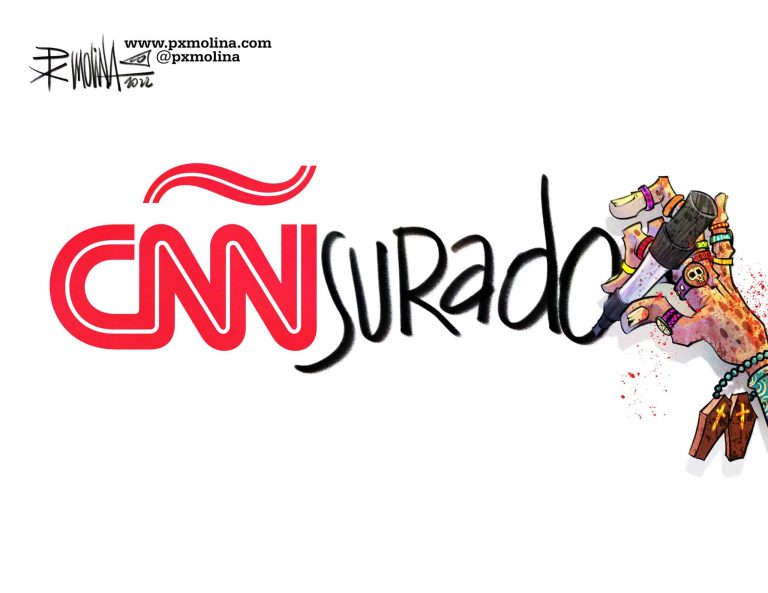23 de septiembre 2022

Children of Exile: The Births “Sowing Hope” in the Camp of Nicaraguan Farmers

PUBLICIDAD 1M
PUBLICIDAD 4D
PUBLICIDAD 5D
The international news network reported that it consulted with the government and cable operators about the measure but has not receive an answer

The Nicaraguan government blocked since Wednesday night the telecast of the international news network CNN in Spanish, without notifying the reason of such decision, the network itself reported on its webpage.
“The Nicaragua Government has not commented on why it took the signal of CNN in Spanish off the air” after 25 years of operating in the country, the network stated.
“CNN has tried to obtain a statement both from the Government and from the cable operators that carry the CNN’s in Spanish signal, without getting a response,” it added.
The news network recalled that the United Nations has expressed its concern about the attacks by the government of Nicaraguan President Daniel Ortega against “the Church, the independent press and human right defenders in Nicaragua.”
“CNN in Spanish believes in the vital role that freedom of the press plays in a healthy democracy,” said the network. It added that it will continue to fulfill its “responsibility to the Nicaraguan public,” by providing its news through its webpage “so that they can have access to information that is not otherwise available.”
Finally, the news network expressed its support to the reports of its journalists and reaffirmed its “commitment to truth and transparency.”
“CNN in Spanish going off the air is preceded by a sustained censorship operation. Prison, the looting of media outlets, judicial prosecution, exile, police siege, persecution of sources and the closing of frequencies are the stark reality of the press in Nicaragua,” said Pedro Vaca, Special Rapporteur for Freedom of Expression of the IACHR.
Ortega rules for four consecutive term and, in these sixteen years, has closed 54 media outlets, newspapers, radio stations, television channels and digital media, some through cancellation of their operating licenses, others through economic asphyxiation and, most recently, through the seizure manu militari of their facilities and the confiscation of their assets.
Eleven workers and media directors have also been imprisoned in the last four years (eight of them are still in prison), and more than 140 journalists have been forced into exile.
Via Twitter, Vaca emphasized that “the highest cost of the censorship operation in Nicaragua is borne by its people. Today they are isolated from a relevant window to the world, in a week of intense international agenda in which Nicaraguan society has a right to know external opinions about its reality.”
He said that “censorship in Nicaragua has an evident negative impact, has installed a generalized fear, but it is not entirely successful. Assuming a tremendous familiar and personal cost, Nicaraguan journalism persists and has demonstrated an admirable commitment to truth and justice.”
Nicaragua is experiencing a political and social crisis since April 2018, which has been accentuated after the bogus general elections of last November 7, in which Ortega was reelected for a fifth term, four consecutive and second with his wife, Rosario Murillo, as Vice President, with his main contenders in prison.
This article was originally published in Spanish in Confidencial and translated by Havana Times
Archivado como:
PUBLICIDAD 3M
Confidencial es un diario digital nicaragüense, de formato multimedia, fundado por Carlos F. Chamorro en junio de 1996. Inició como un semanario impreso y hoy es un medio de referencia regional con información, análisis, entrevistas, perfiles, reportajes e investigaciones sobre Nicaragua, informando desde el exilio por la persecución política de la dictadura de Daniel Ortega y Rosario Murillo.
PUBLICIDAD 3D